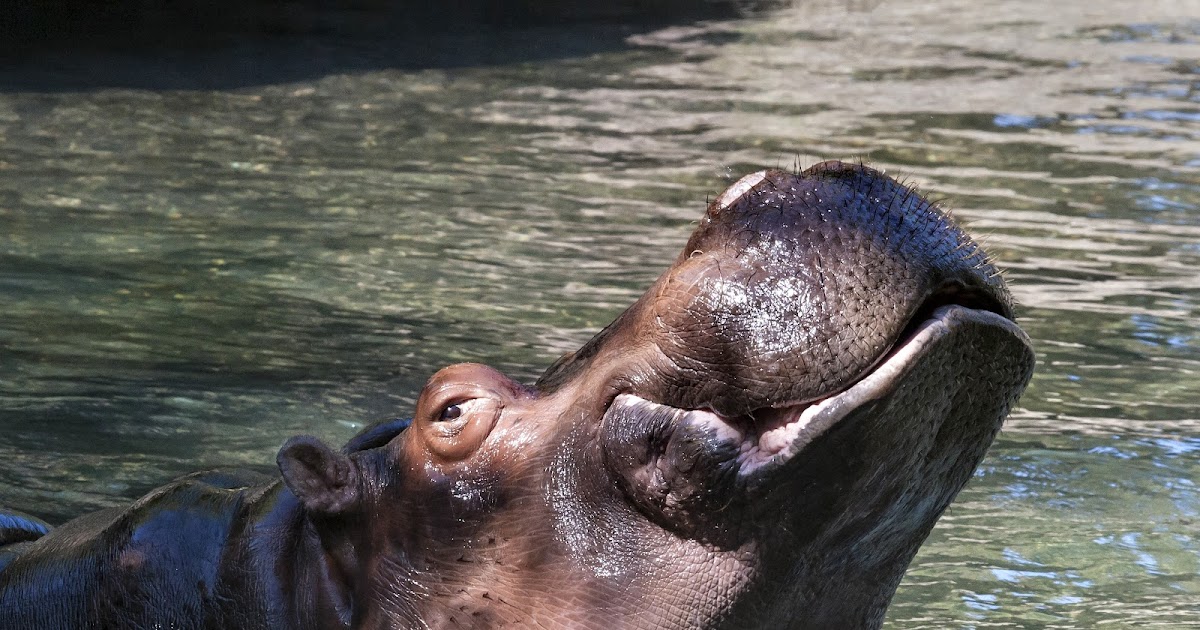Summary of Woodland Park Zoo to say goodbye to beloved hippo, Water Lily:
The Woodland Park Zoo announced the forthcoming humane euthanasia of their beloved hippopotamus Water Lily, affectionately known as Lily, due to declining health and quality of life following a cancer diagnosis last month. At 45 years old, veterinarians and caretakers made this difficult end-of-life decision. The zoo has invited the community to visit and celebrate Lily’s life before she is euthanized early next week. Lily, born in August 1978 and has been at Woodland Park Zoo since October 1979, has significantly impacted those who worked with her through her unique personality and behaviors.
Following her diagnosis of fibrosarcoma, a cancer of connective tissue, Lily’s health and mobility have notably declined, leading to the decision to prevent her suffering. Lupe, another hippo who shares the habitat with Lily, will receive extra care and attention as the zoo explores relocation options for her to join other hippos at an accredited zoo in line with the Species Survival Plan. The zoo’s current hippo habitat, over 40 years old, will not house new hippos as the zoo aims to meet improved animal care and sustainability standards.
The zoo expresses gratitude for the community’s support and invites individuals to share their memories and photos of Lily on social media, discouraging the leaving of memorial items at the habitat to prevent harm to animals.
– The multifaceted role of zoos in wildlife conservation and public education
– The impact and legacy of Water Lily, the beloved hippopotamus at Woodland Park Zoo
– Ethical considerations and practices in animal health and end-of-life care in zoos
– The importance of Species Survival Plans in ensuring the future of endangered species
– Community engagement and the role of public support in zoo initiatives
Zoos have long served as sanctuaries for wildlife, playing a critical role in conservation efforts, breeding programs, and educational outreach. Modern zoos focus on species’ health, well-being, and preservation, often facilitating the connection between humans and nature. Woodland Park Zoo, a leader in these efforts, has recently shared the sad news of bidding farewell to its beloved hippopotamus, Water Lily, marking the end of an era for the zoo and its community of supporters.
Water Lily’s significant impact on Woodland Park Zoo and its patrons underscores the unique bond between humans and animals in these settings. Born in August 1978 at Houston Zoo and moving to Woodland Park Zoo the following year, Water Lily has been a pivotal part of the zoo’s ecosystem. Her presence offered countless visitors insight into the life of hippos, fostering a deeper appreciation and understanding of this species. Beyond her educational impact, Water Lily’s story is a testament to the zoo’s commitment to providing its residents with the highest standard of care.
The decision to humanely euthanize Water Lily after a cancer diagnosis involves a deeply ethical approach to animal care, prioritizing the quality of life for zoo inhabitants. Though heartbreaking, such decisions are made carefully, involving experienced veterinary and animal care teams. This practice highlights the evolving ethics in zoo management, emphasizing compassion and respect for the animals’ wellbeing.
Woodland Park Zoo’s involvement in Species Survival Plans (SSPs) demonstrates a pro-active role in conservation efforts. SSPs, managed by the Association of Zoos and Aquariums, aim to oversee the population management of select species within accredited zoos and aquariums to enhance their conservation in the wild. The plan to find a companion for Lupe, Water Lily’s habitat mate, aligns with these goals, ensuring she receives the best possible social environment. This step is crucial in maintaining not only the physical health of animals but also their emotional and psychological well-being.
Community engagement is vital for zoos, as public support and interest fuel conservation and education initiatives. Woodland Park Zoo’s call for community members to share their memories of Water Lily exemplifies how zoos create a shared space for collective mourning and celebration of animal lives. Such engagement reinforces the importance of each individual’s role in wildlife preservation and builds a community united by a love for nature.
The story of Water Lily at Woodland Park Zoo reflects broader themes in wildlife conservation, ethical animal care, and the role of zoos in modern society. As educational institutions, conservation advocates, and stewards of wildlife, zoos like Woodland Park are essential in bridging the gap between humans and the natural world. Through focused efforts on animal welfare, species preservation, and public engagement, zoos contribute significantly to our understanding of and empathy for wildlife. Water Lily’s legacy will continue to inspire both the staff at Woodland Park Zoo and its visitors, reminding us of the profound connections possible between humans and the animal kingdom.

